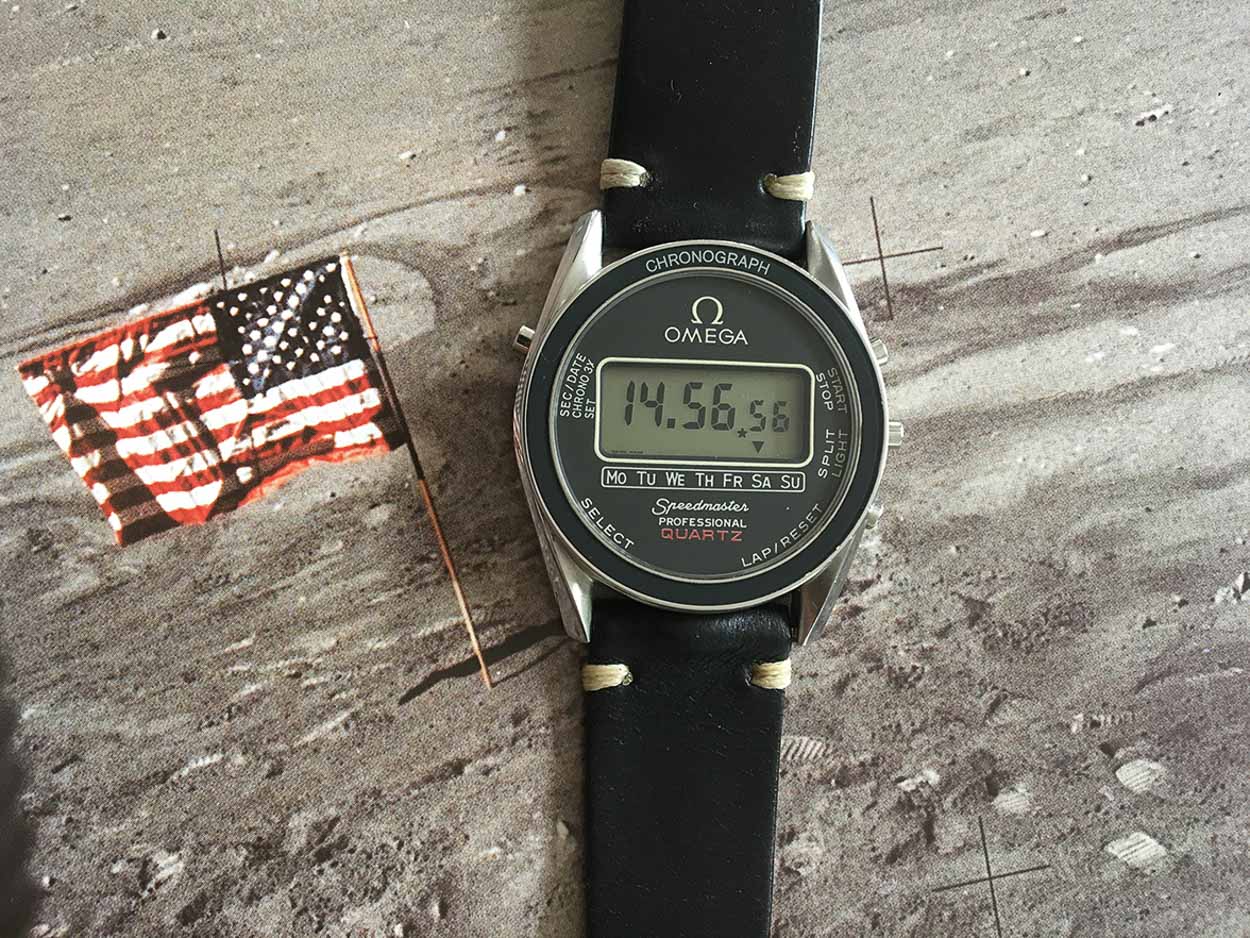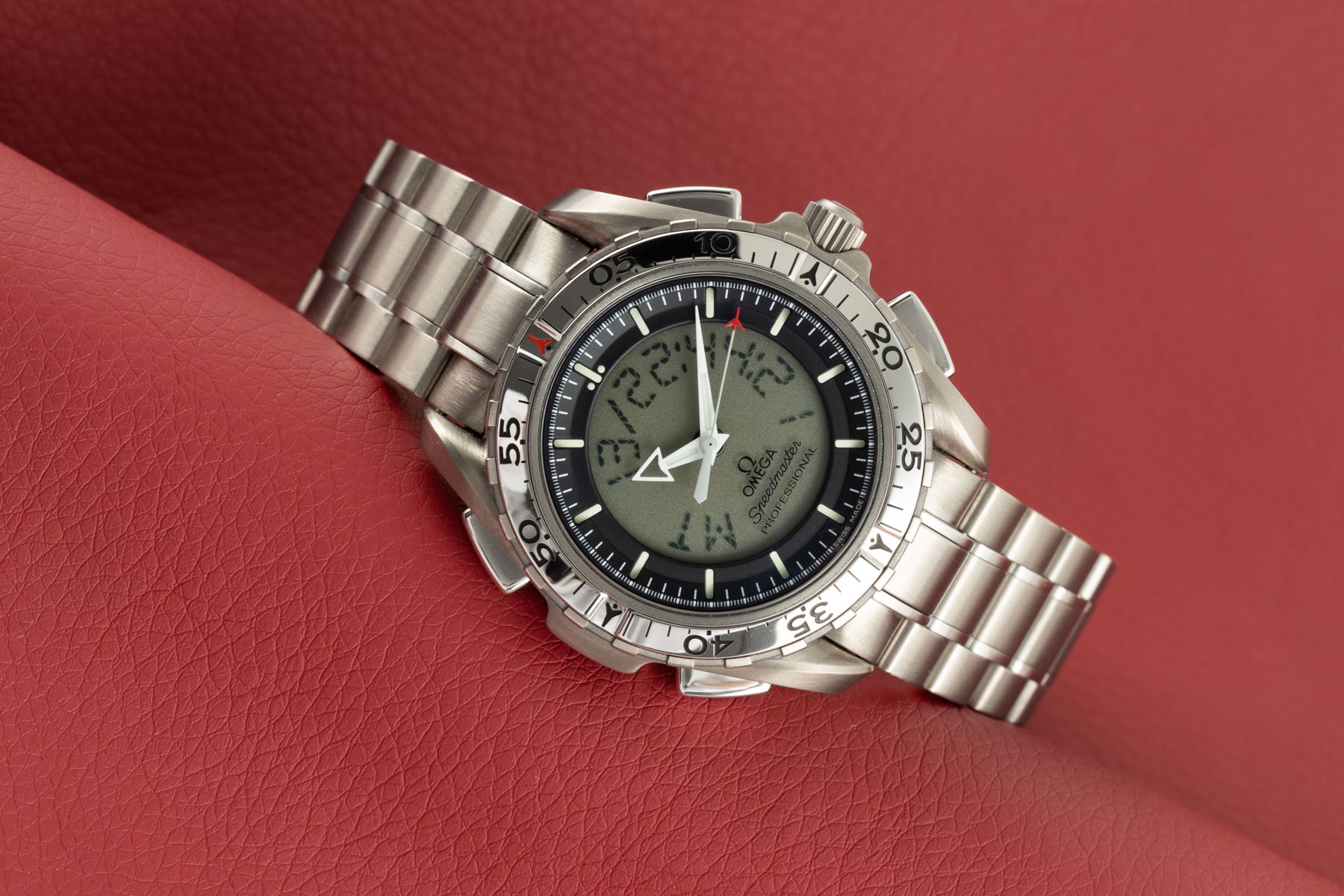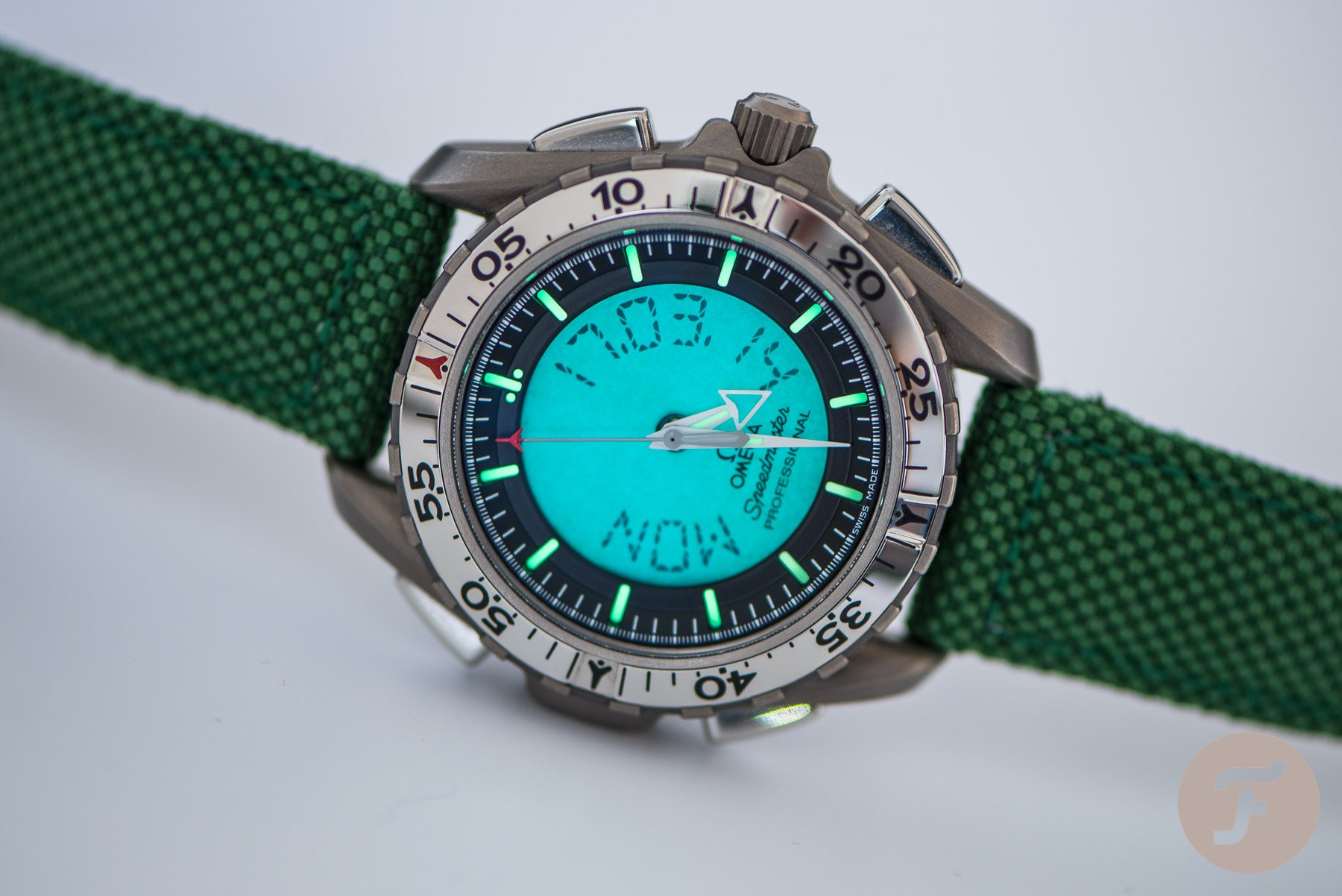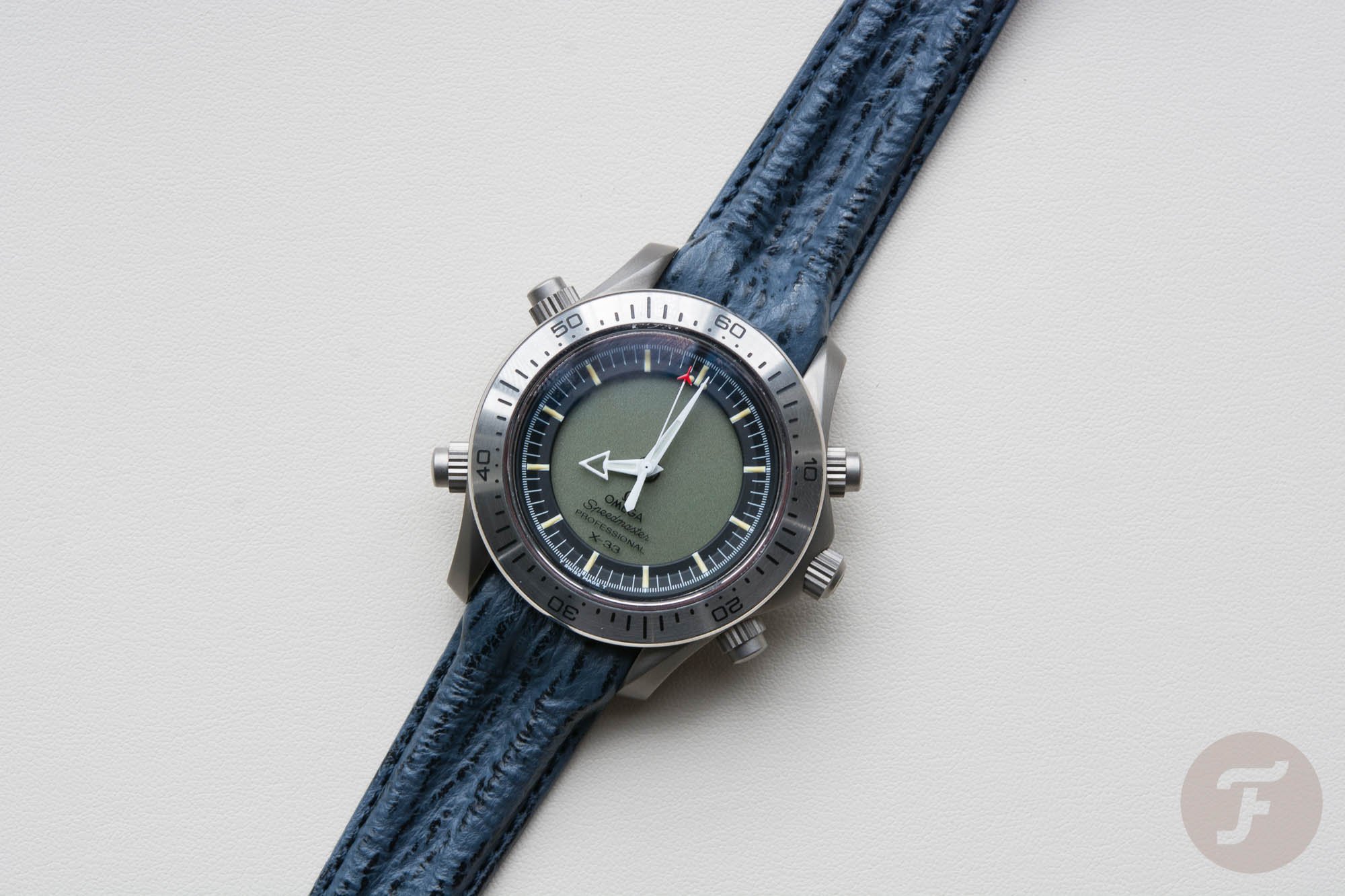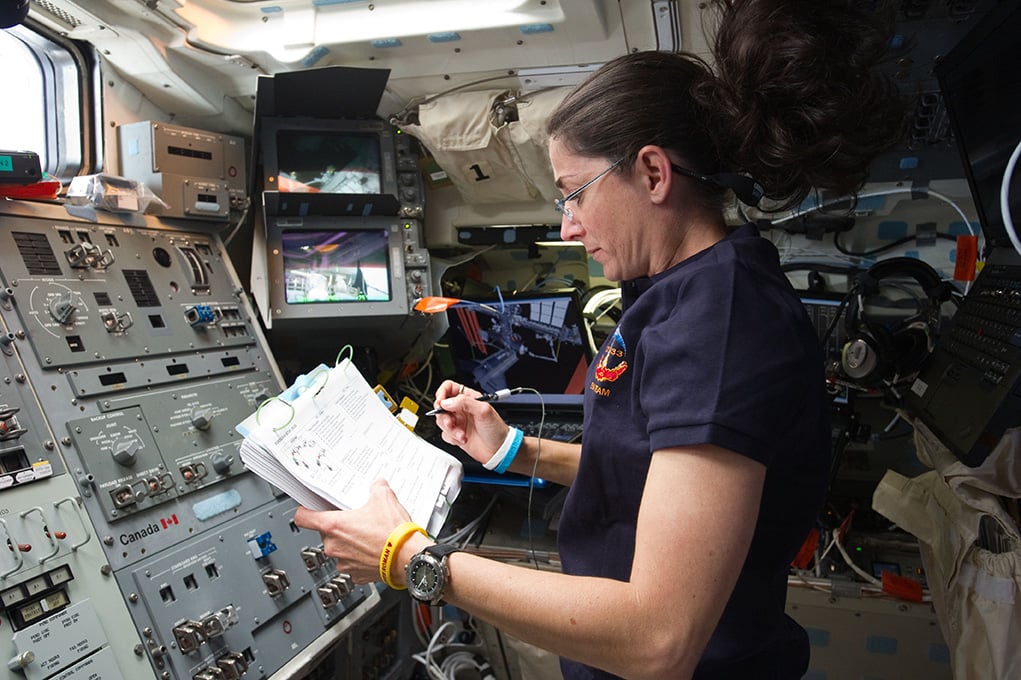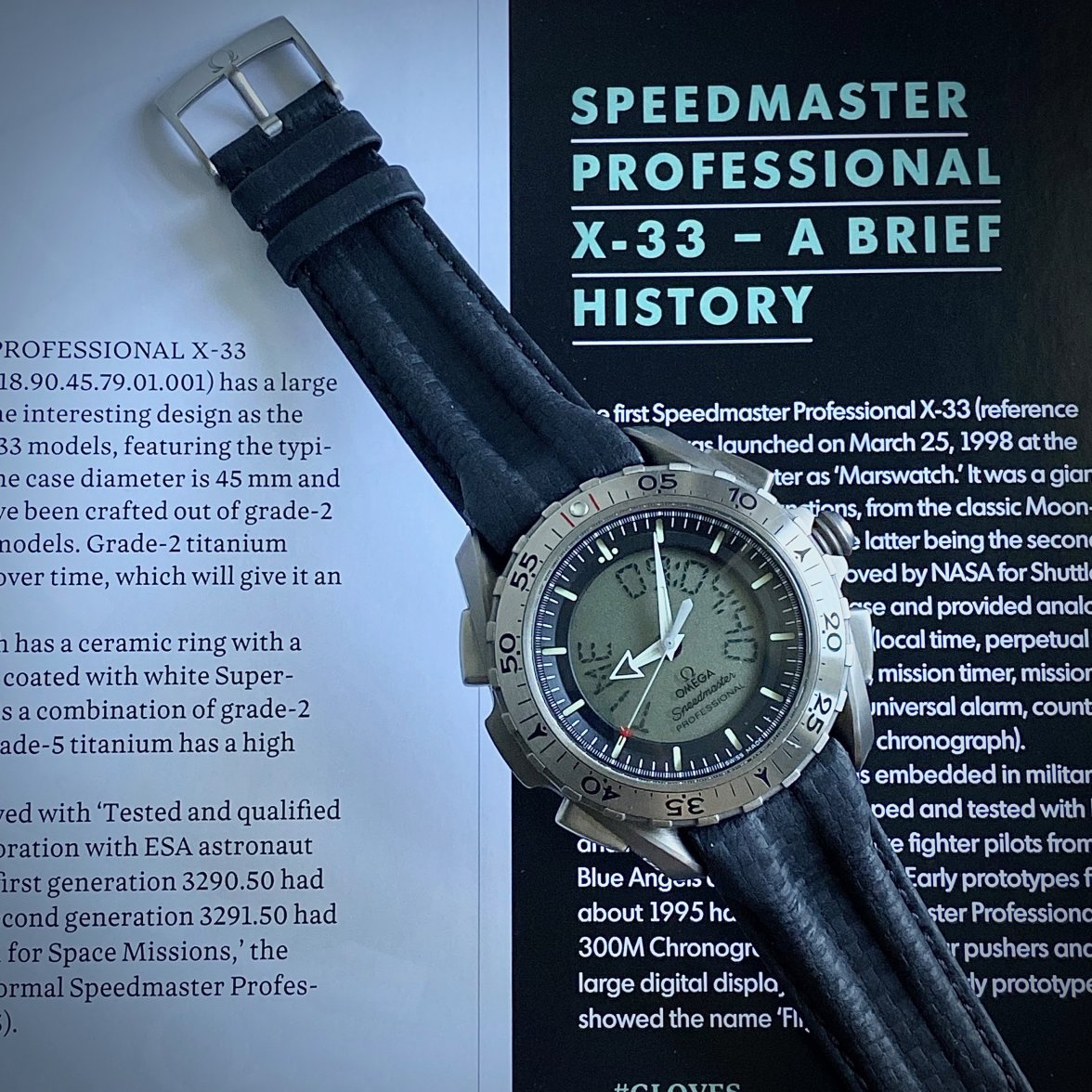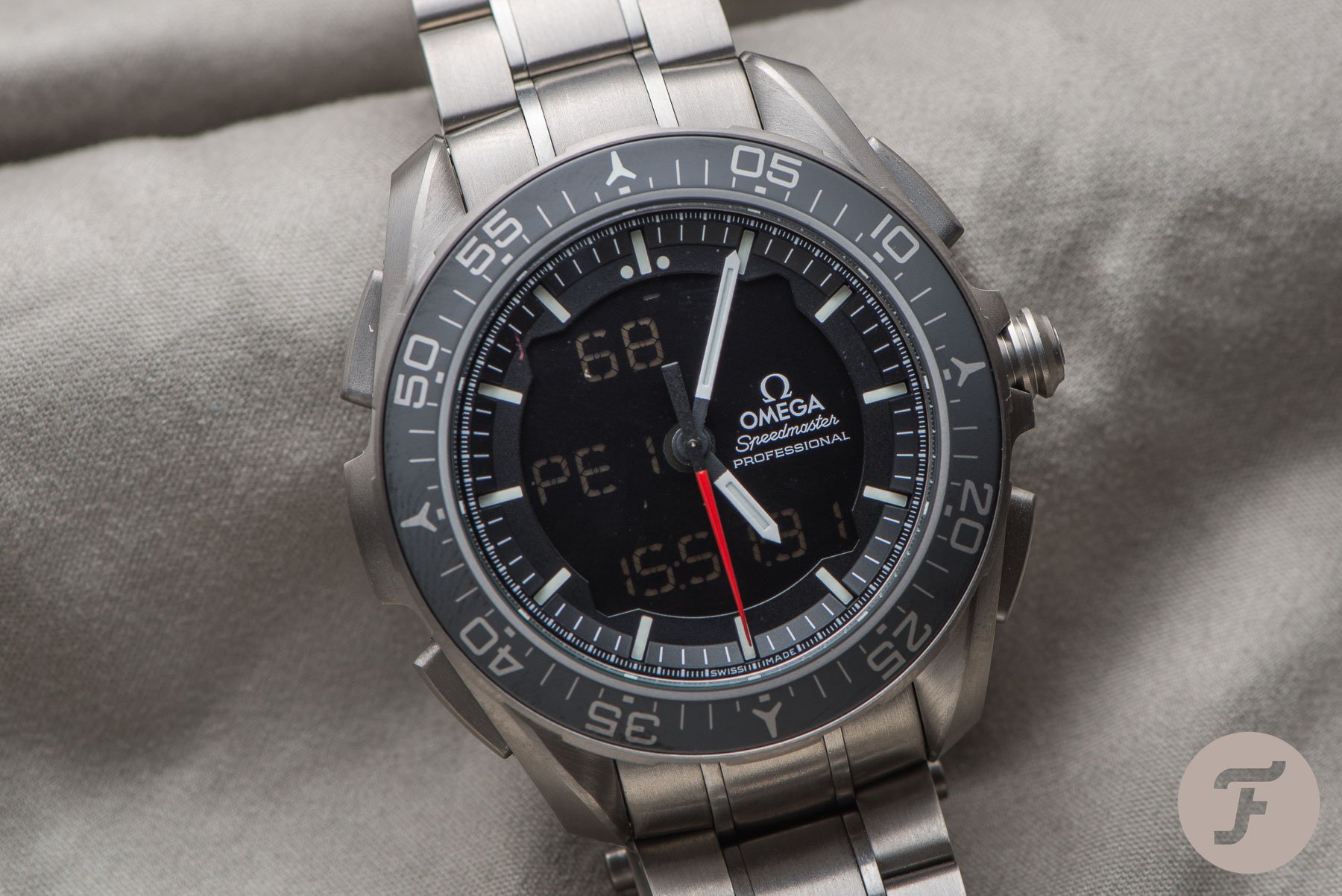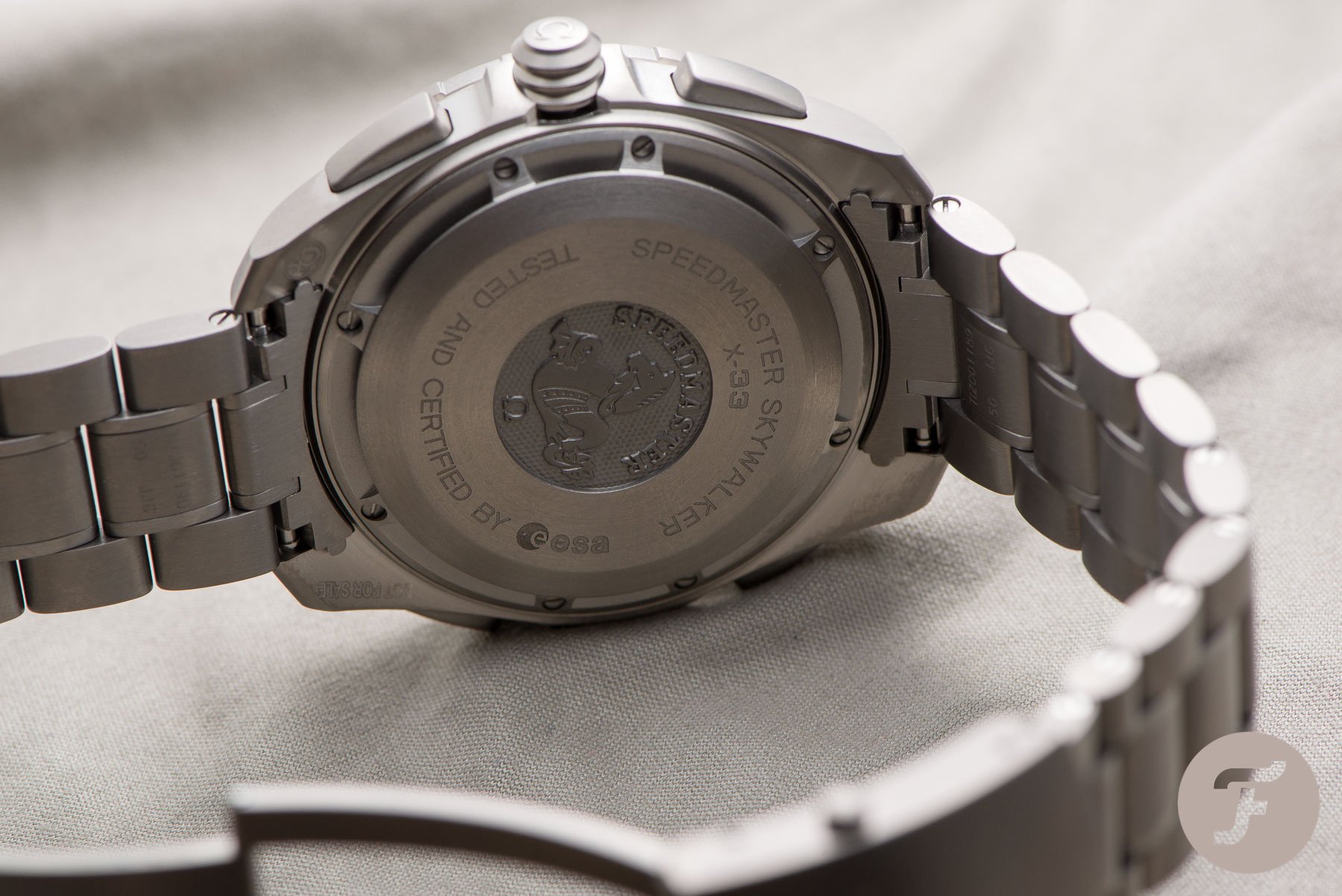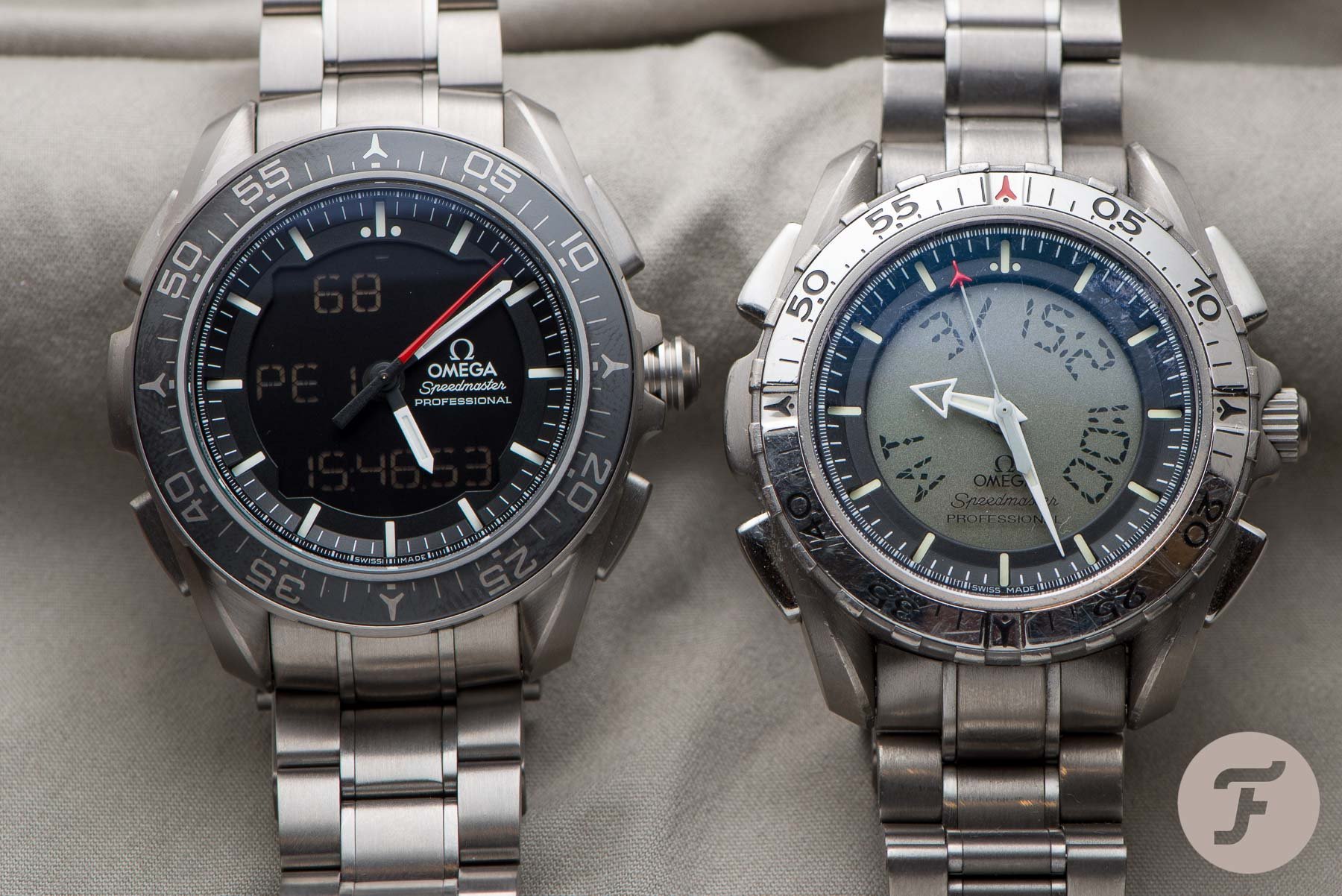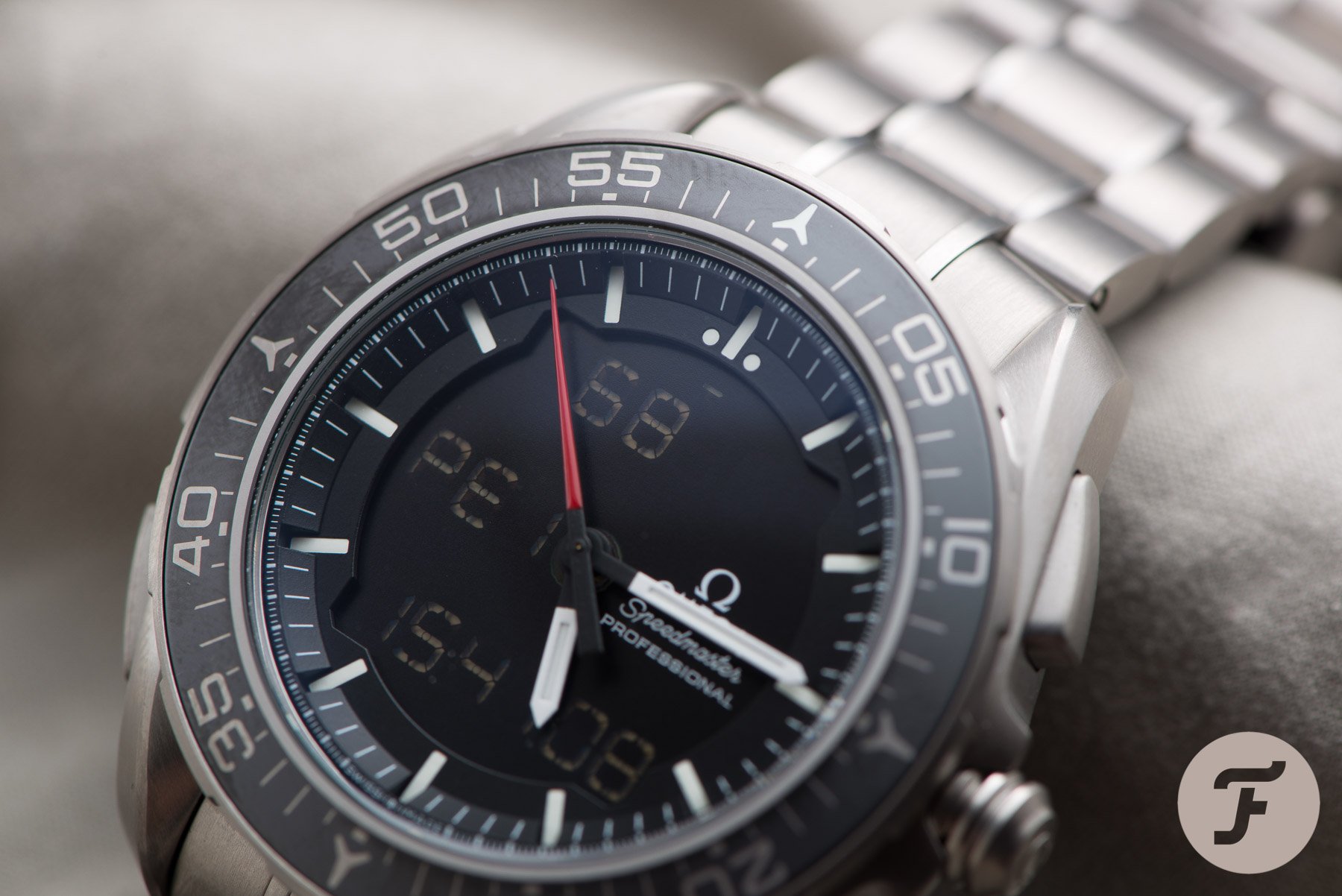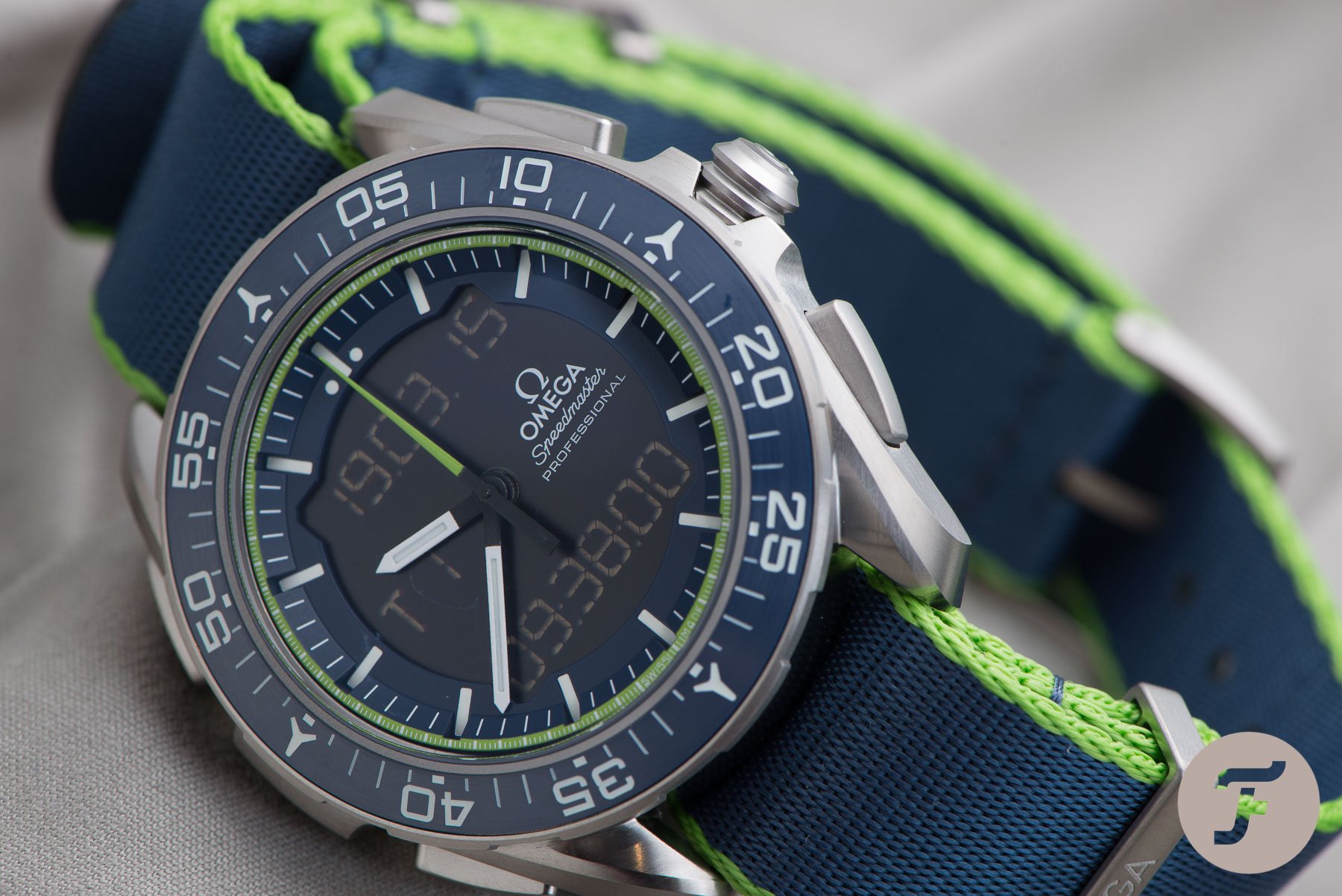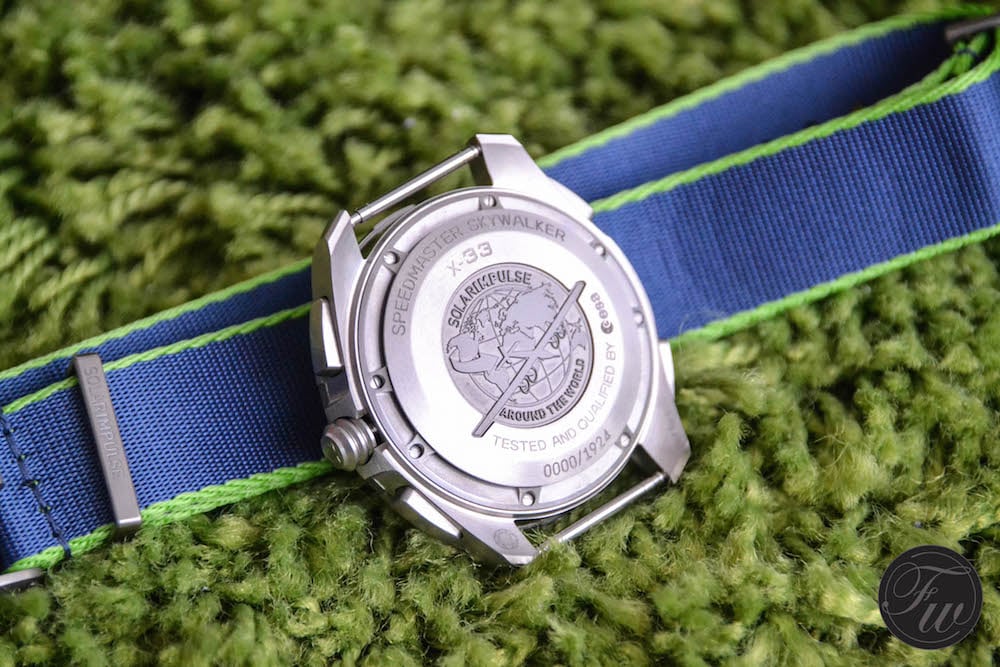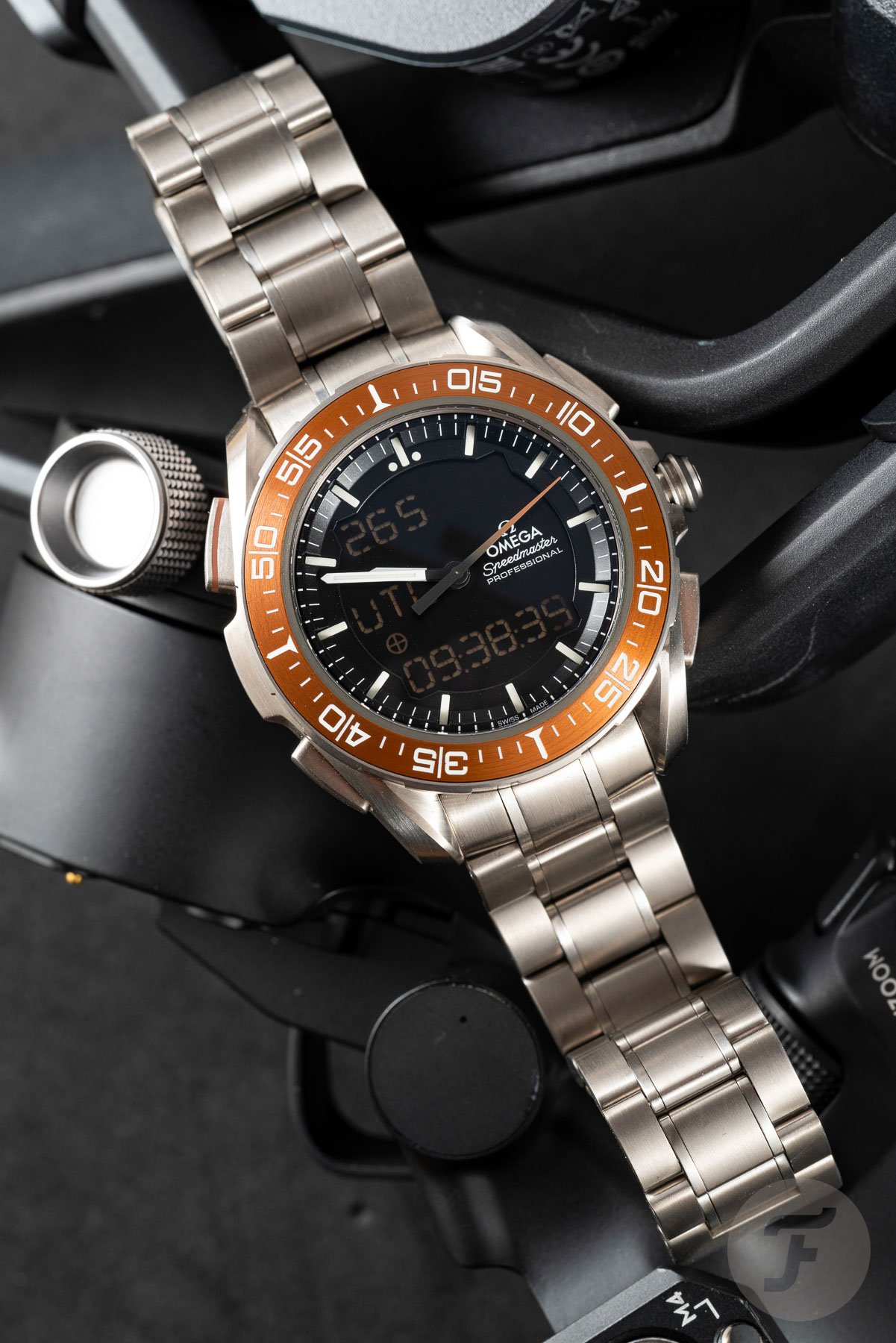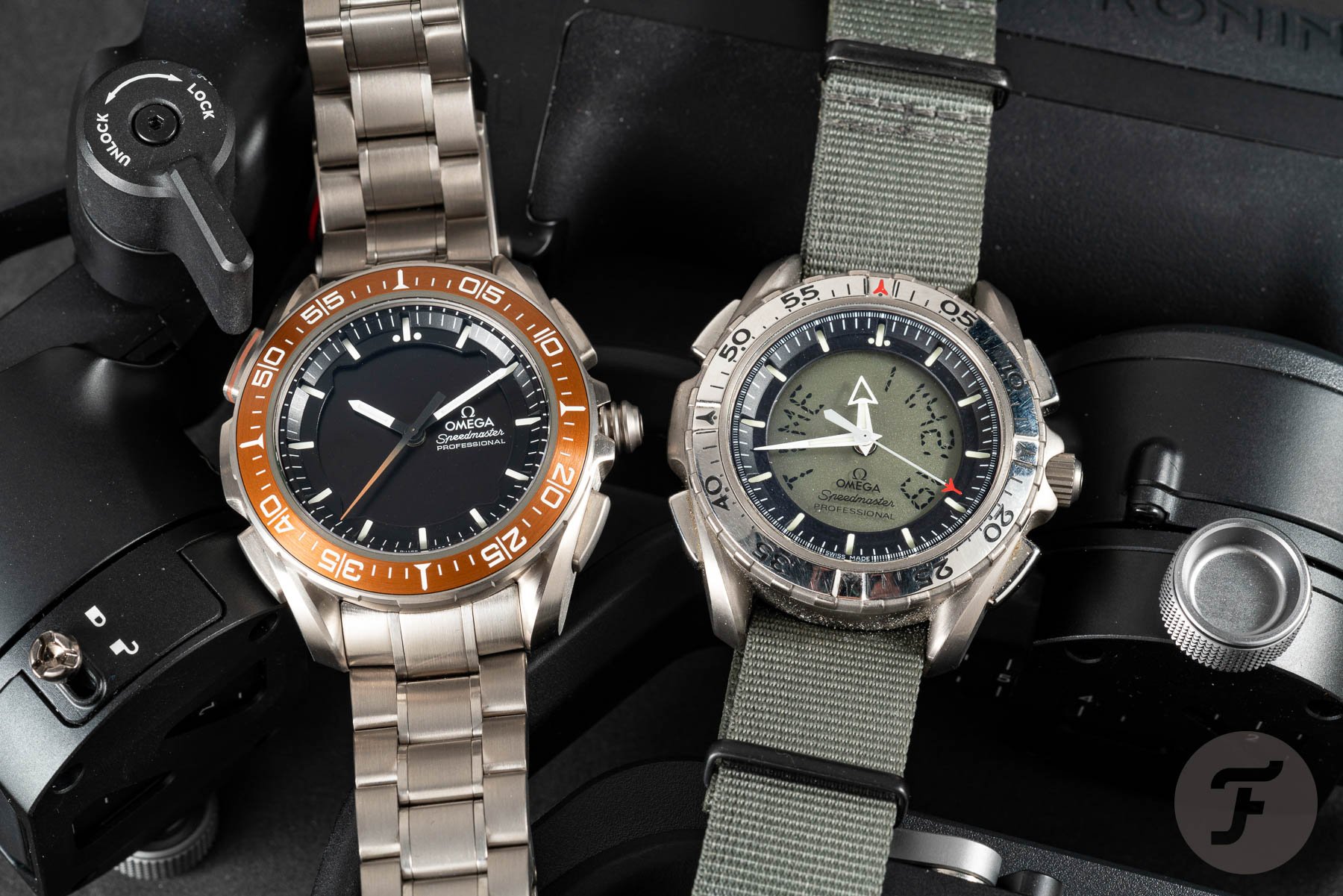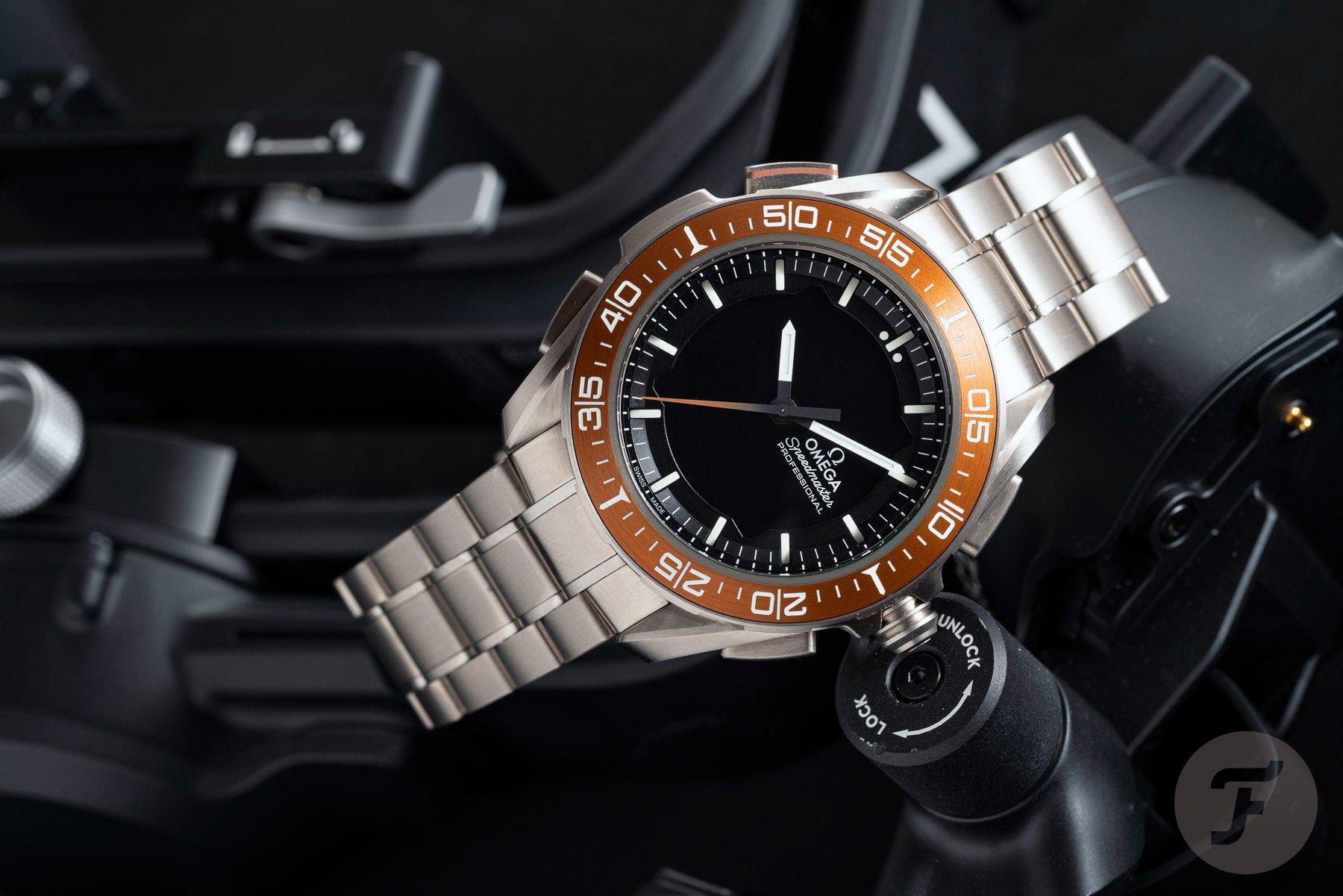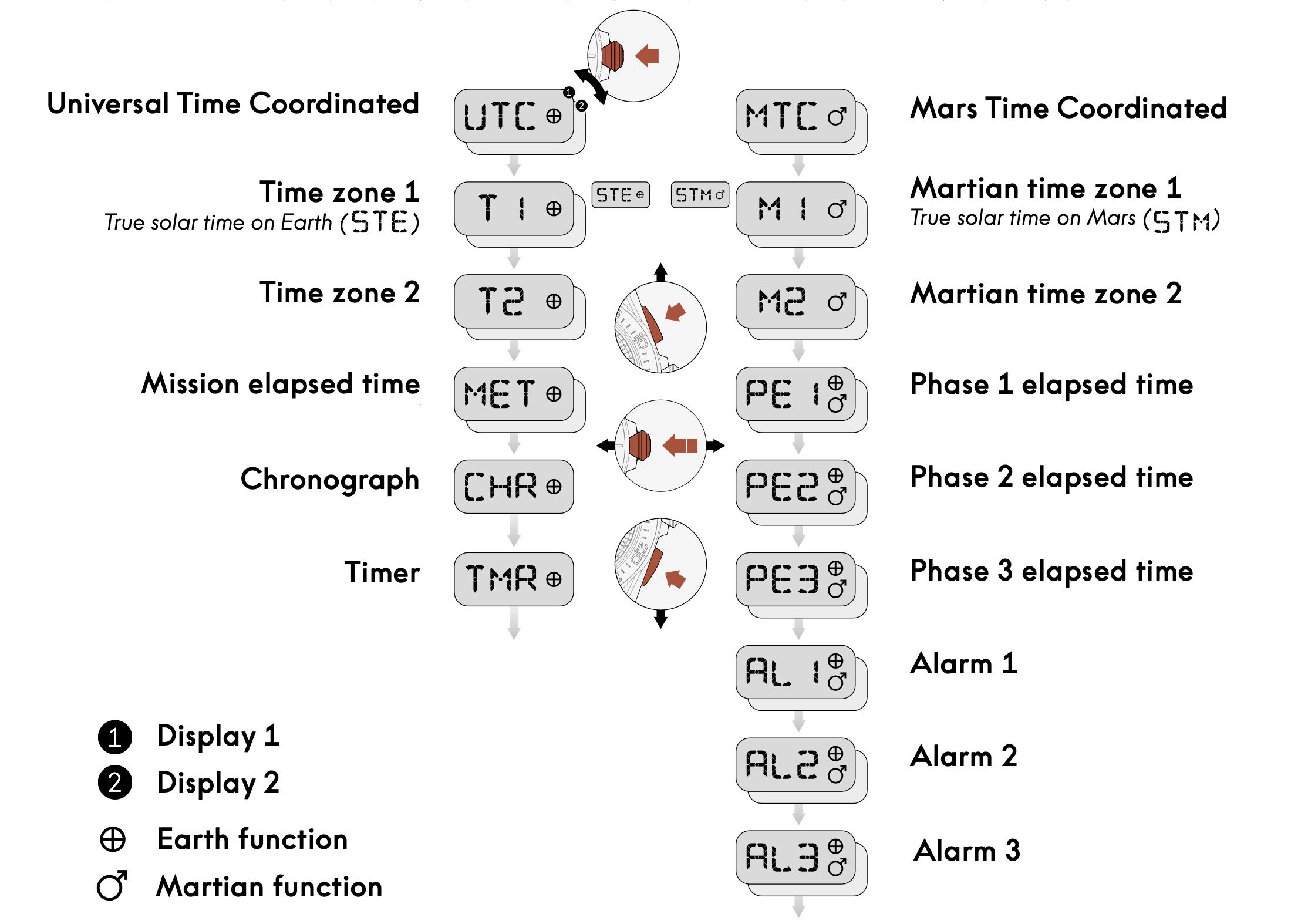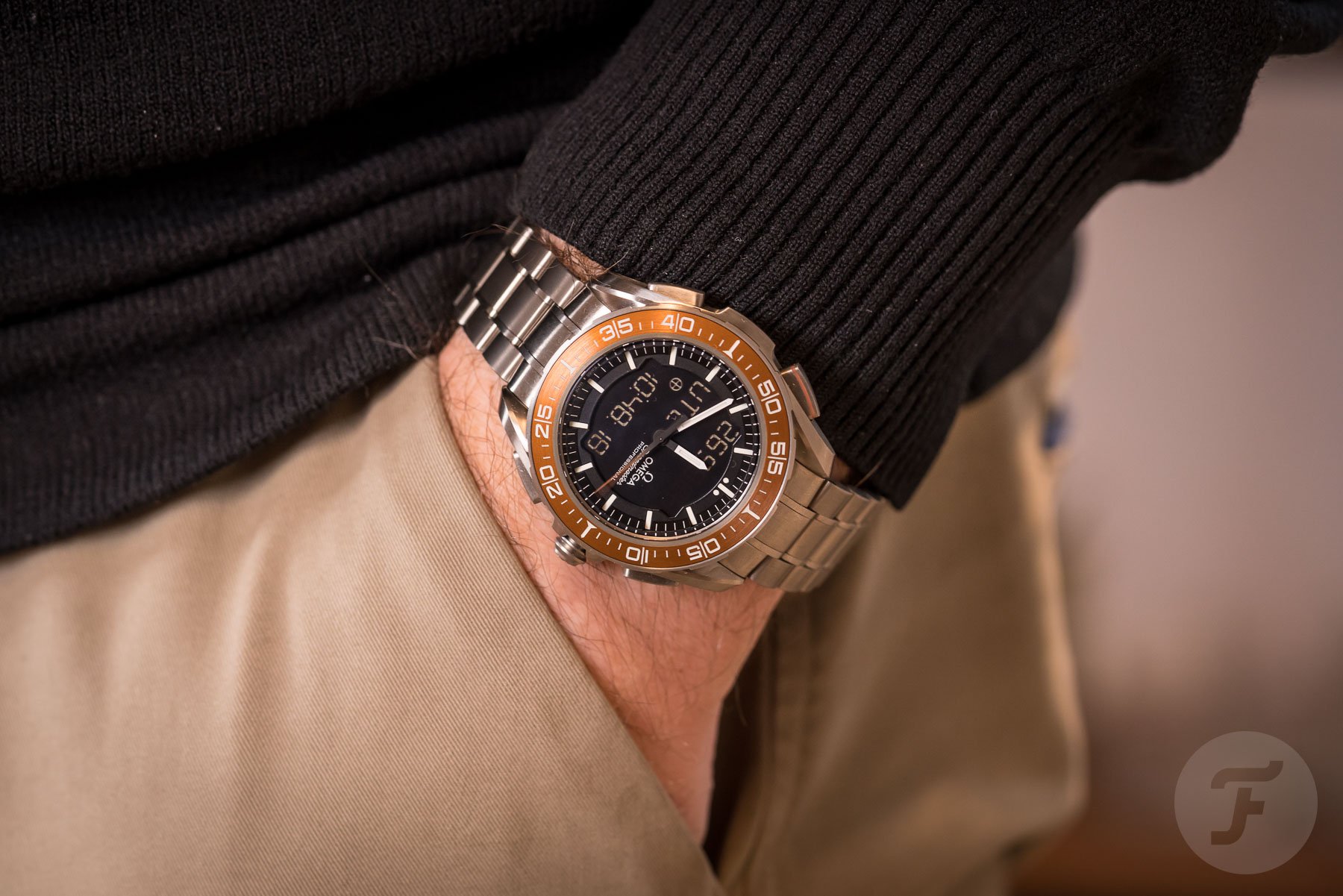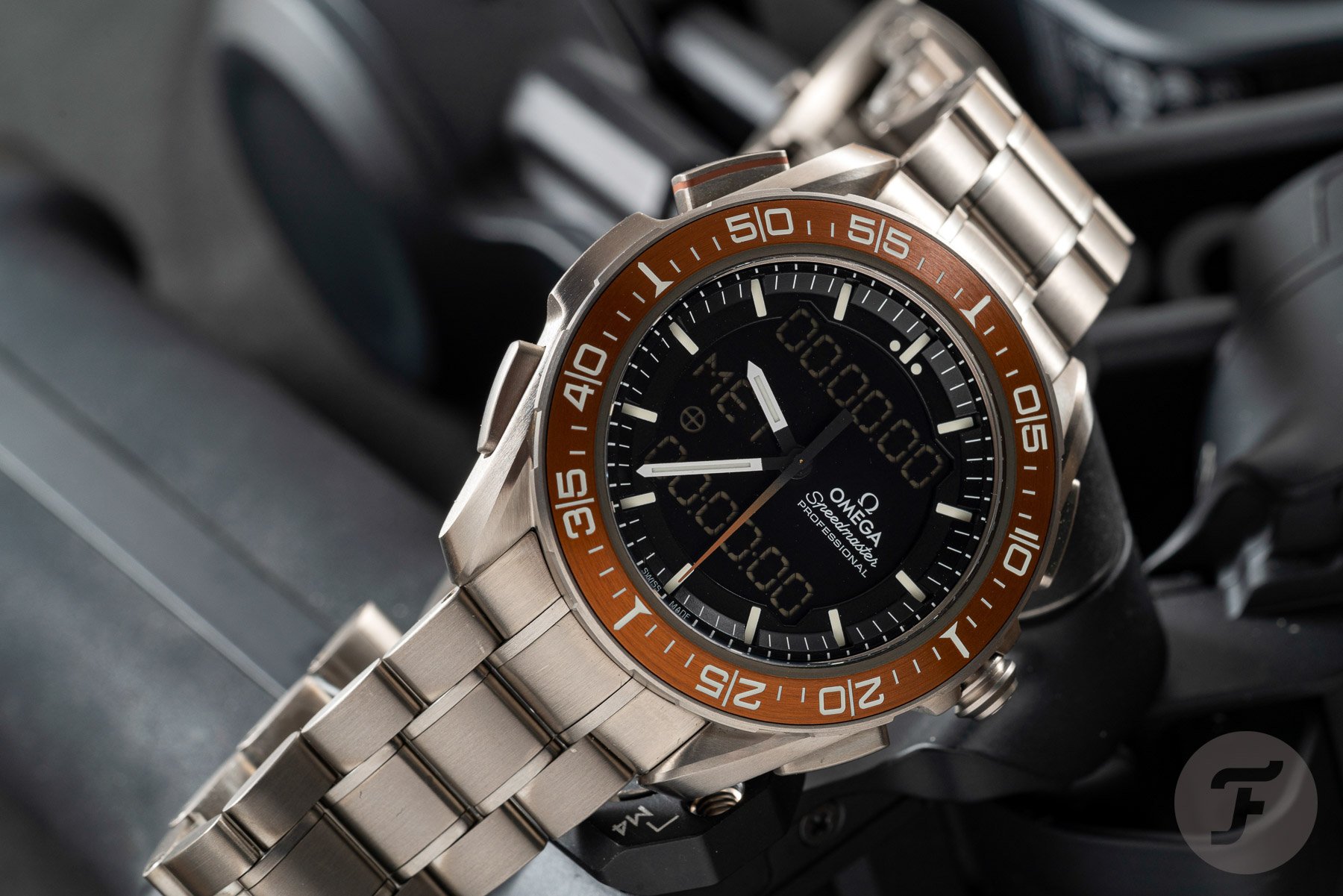The Ultimate Omega Speedmaster X-33 Guide — All Four Generations
Omega just introduced the new Speedmaster X-33 iteration, the Marstimer. But in case you are not familiar with the X-33 story, let me introduce you to this Speedmaster instrument and explain why it is such a space-relevant watch.
On March 25th, 1998, Omega released the Speedmaster Professional X-33 reference 3290.50. Indeed, this digital Speedmaster Professional (mind the “Professional”) was qualified by NASA for use on Space Shuttle missions.
Speedmaster LCD History
But 20 years before that, Omega already had digital Speedmaster models in the collection — the Speedmaster Professional LCD ST 186.0004 and the Speedmaster (non-Professional) ST 386.0809. The ST 186.0004 debuted in 1977 and had an LCD display that could show the time, date, day, chronograph (1/100th of a second), split seconds, lap time, split/stop (one-two-stop), and a light.
In 1978, when NASA requested watches for the Spaced Shuttle Program, Omega submitted the ST 186.0004 as the Alaska IV watch (Alaska III was the mechanical hand-wound Speedmaster Professional with the radial dial). There was, however, one small change compared to the regular Speedmaster ST 186.0004: Omega changed the way the watch could be illuminated. Instead of utilizing the light bulbs from the standard Speedmaster LCD, Omega created a method with tritium tubes behind the LCD screen. NASA tested these watches, but at some point decided not to go forward with them. The digital Speedmasters disappeared from the market in the following years.
The Speedmaster X-33 Marswatch (1998–2001)
Then, in 1998, after years of testing, Omega introduced the Marswatch, the Speedmaster Professional X-33. Of course, missions to Mars were not the objective of the development of that Speedmaster, but the name merely indicated a new generation of watches. The first Speedmaster Professional X-33 Marswatch (reference 3290.50) was launched on March 25th, 1998 at the Houston Space Center.
It was a giant leap in design and functions from the classic mechanical Moonwatch to the Marswatch. The latter became the second Speedmaster to receive approval from NASA for the Space Shuttle missions. It had a titanium case and provided analog as well as digital information — local time, perpetual calendar, a programmable alarm, mission timer, mission alarm, universal time (GMT), universal alarm, countdown timer (with alarm), and a chronograph.
Prototypes
At the time, the X-33 was embedded in military storytelling, having been developed and tested with ESA and NASA astronauts as well as elite fighter pilots from the Blue Angels and Thunderbirds. Early prototypes from around 1995 had titanium Seamaster Professional 300M Chronograph cases with four pushers and a large digital display. An interesting detail is that some of the early prototype dials even showed the “Flightmaster” name.
Ease of use
The Omega X-33 had to be operable with gloves. Therefore, the crown became a pusher instead of a turner. Pushing it allowed the user to browse through its various functions. The other buttons were for stopping, starting, and resetting the chronograph, activating the light of the display (8 lux), or swapping between the current function of the dial (e.g. date or chronograph) and the mission timer. One of the most remarkable novelties was the extremely loud 80 dB alarm, designed to be perceivable in noisy environments such as jetfighter cockpits and space modules. The X-33 also had an interesting low-battery indicator. “Dancing hands” indicated that the battery was almost dead. The commercial watch came on a red or black Kevlar strap.
Speedmaster X-33 2nd Generation (2001–2010)
In 2001, Omega released a modified version (3291.50) featuring a brushed bezel with LumiNova dot, satin-finished pushers instead of shiny ones, and a new crown design. A titanium bracelet was available, and the case back had the “Qualfied by NASA…” inscription. This watch is referred to as the X-33 2nd Generation.
- Omega Speedmaster X-33 3290.50 and 3291.50 (2nd Generation)
- Diameter: 42.25mm
- Material: Grade 2 titanium
- Movement: Caliber 1666
- Battery life: 3 years
- Crystal: Sapphire
- Water resistance: 30m
- Functions: Time, GMT, Worldtimer, 80 dB Alarm, Chronograph, Countdown, Perpetual calendar, Mission timer, Mission Alarm
- Price: N/A (Discontinued)
Omega discontinued the sale of the X-33 2nd Generation to the public in 2010. However, the watch remained in production for NASA under a different reference number (318.92.42.79.01.001). The Speedmaster X-33 1st and 2nd Generation watches have been under-appreciated for a long time, resulting in some very attractive prices on the pre-owned market. Although prices have risen, you can still find these first two X-33 models for around €2,500 / $2,500 complete with the box and papers.
Speedmaster X-33 Skywalker (2014–current)
In 2014, Omega introduced the third generation of the Speedmaster X-33, the Skywalker. It remains in production to this day.
The Speedmaster X-33 Skywalker (reference 318.90.45.79.01.001) has a large titanium case. It follows the same interesting design as the former Speedmaster X-33 models, featuring the typical Speedmaster lugs. The case is 45mm in diameter, and both it and the bracelet have been crafted out of Grade 2 titanium, like the older models. Grade 2 titanium tends to become darker over time, which will give it an interesting look. The bezel on this watch has a ceramic ring with a chromium nitride scale coated with white Super-LumiNova.
“Tested and certified” engraving
The bracelet, while mostly Grade 2 titanium like the case, also features high-polish Grade 5 titanium intermediate links. Referencing a collaboration with ESA astronaut Jean-François Clervoy, the case back is engraved with “Tested and qualified by ESA” (in contrast to the 3290.50 1st Generation, which had only the Seahorse logo, and the 3291.50 2nd Generation, which had “Flight-qualified by NASA for space missions”, the same inscription as the normal Speedmaster Professional 3570.50 family). Interestingly, the first batch of the X-33 Skywalker had an error on the case back. It read “Tested and certified by ESA”, while it should have read “Tested and qualified”. ESA does not certify watches.
A new dial for the X-33
The most striking change in the Skywalker is the completely new look. It features a more “cut-out” dial in black that perfectly fits the horizontal digital printing and lines of information. Aesthetically, its looks have become a bit more “normal”. Previous generations had a large aperture for the round digital display, which showed information in an equally round fashion. The Skywalker’s horizontal display, however, is more in accordance with how most humans read. The X-33 Skywalker packs a complete set of functions — hours, minutes, and seconds in up to three different time zones, three alarms with different sounds, chronograph and countdown functions, as well as a perpetual calendar with day, date, month, year, and week-number indications.
On the X-33 Skywalker, the digital information is brightly and beautifully illuminated. Every character lights up, and there’s a dimmer backlight as well. This is in contrast to the first two generations, which had the classic black LCD characters with a green backlight only. The five-second duration of the lighting, however, is a point of contention. It may be too short to operate the Skywalker in dark conditions. The duration of the illumination cannot be set, and it would be better to have a dedicated pusher for it so as not to interfere with other functions. It is as if the light switch in a car cabin were the same button for the radio. With the radio turned on, you could not turn on the lights, as doing so would also turn the radio off.
Phase Elapsed Time
The most important difference between the previous generations and the X-33 Skywalker is a function called PET — Phased Elapsed Time. PET combines the traditional functions of the timer and alarms and makes it much easier to set them (without troublesome calculations) on different time scales. PET enables automatic initiation of a timer (countdown function) and chronograph (elapsed time). Without PET, all timers and chronographs would be manually triggered. That would be a problem if you wanted a countdown to end at a specified future point in time. PET has an alarm with a built-in countdown function that measures elapsed time going forward.
The benefit of PET may be unclear for the commuting civilian or even a frequent flyer, but imagine the pilot of a spaceship who has to deal with a series of minutely timed and controlled events. With orbital corrections, interplanetary insertions, or vehicle rendezvous, timing is of the essence. PET can set an accurate time/date for such events, counting down the remaining time until that point or recording the elapsed time from it.
PET meets MET
Another way to use PET is by combining it with Mission Elapsed Time (MET) to calculate the setting of an alarm. This can be very useful in the stressful circumstances of an astronaut because it replaces thorough calculations. For example, you want to set an alarm for a future point in time. You know the duration, but you don’t know the endpoint. If the start point is or was at 09:29 and the duration is 1 day, 5 hours, and 17 minutes, you could calculate the alarm time, but under stressful circumstances — when tired, in a hurry, or overloaded with other tasks and aware of the serious consequences of miscalculation — you might prefer PET to set it. In that case, you’d need only set Mission Elapsed Time (MET) to the start point and PET as the duration to set the alarm precisely.
Down to Earth
Most Speedmaster X-33 owners will never make it into space, so this spaceman’s instrument with its PET and MET may seem useless for the common man. But if that were the case, any smartwatch would be useless too. The personal benefit is in applying their functionality. And while timing and planning are crucial in our daily lives, full of demanding schedules and events, the X-33 Skywalker can be a very helpful instrument in navigating our travels through our daily lives. Naturally, being a second too late in orbit has other consequences than being too late to the barber shop, but as a wise man once said, timing is everything. Especially in the world of 24-hour global business operations that sometimes span several time zones, the X-33 keeps us right on time and down to Earth.
- Omega Speedmaster X-33 Skywalker 318.90.45.79.01.001
- Diameter: 45mm
- Case: Grade 2 Titanum
- Bracelet: Grade 2 and Grade 5 titanium
- Movement: Caliber 5619
- Battery life: 2 years
- Crystal: Sapphire
- Water Resistance: 30 meters
- Functions: Time, GMT, Worldtimer, 80 dB Alarm, Chronograph, Countdown, Perpetual calendar, Mission timer, Mission Alarm, Phase Elapsed Time, Mission Elapsed Time
- Price: CHF 5,900
In 2015, Omega introduced the Speedmaster X-33 Skywalker Solar Impulse Limited Edition. Omega commemorated this special project — an aircraft flying around the globe powered by solar energy — with 1924 pieces of this model. Besides the different colors of the watch and strap, it was identical to the original 2014 X-33 Skywalker. In 2017, though, Omega released yet another limited edition of the Speedmaster X-33 Skywalker, this time for the ETNZ (Emirates Team New Zealand) regatta team. Limited to 2017 pieces, and with a slightly different movement (caliber 5620) that had additional functionality specifically for regatta purposes.
The caliber 5620 for this Speedmaster X-33 Regatta had a new analog countdown and several new digital regatta functions too:
- CTD: count down to the start of the race
- RAC: count up for the racing time
- Synchronization on the closest shot
Those new digital functions could be activated with the fourth pusher (now with a red HyCeram line on it). Furthermore, the X-33 Regatta had new logbook functions (LGB). It could record up to two races (LGB A and LGB B), with 10 buoy recordings each.
Speedmaster X-33 Marstimer (2022–current)
Today — September 27th, 2022 — Omega introduced the Speedmaster X-33 Marstimer. It is largely based on the Skywalker but comes with additional functions for Mars exploration and new fitting colors. This watch was developed at the request of the European Space Agency (ESA). As you might know, a day on Mars takes a bit longer than a day on Earth. The “sidereal” day on Mars is 24 hours, 37 minutes, and 22 seconds, while its solar day (sol) is 24 hours, 39 minutes, and 35 seconds.
All missions on Mars follow Mars local time. As such, the scientists and astronauts who work on these missions need to know when certain events need to take place and need the local time to calculate locations on the Red Planet.
Request from the European Space Agency
ESA was in need of a watch that could indicate some very specific information, such as local true solar time, coordinated Mars time, Mars time in different time zones, mission elapsed time in Martian days, solar longitude (Mars orbital position), and years sol number (Mars date). As such, ESA contacted Omega with a request to equip a (new) watch with these capabilities. Omega found out that the Speedmaster X-33 Skywalker has a movement that was not sufficient to handle these functions and calculations. This meant that a new movement had to be developed with this additional functionality.
The requirements from ESA and the research and development by Omega resulted in caliber 5622.
It is not a replacement for the X-33 Skywalker, merely an addition
Just like the previous version, the X-33 Marstimer has a thermo-compensated and highly accurate quartz movement. The movement also contains all the previous functions from the X-33 Skywalker — mission elapsed time, phase elapsed times, alarms, etc. — but has the new Mars-specific functions as well. The Speedmaster X-33 Marstimer, or X-33 4th Generation, will not replace the Skywalker. However, the watch will probably be allocated to all current and future ESA astronauts for their missions.
Special Marstimer functions
On top of the Earth-time functions of the Speedmaster X-33 Skywalker, the X-33 Marstimer has the following additional features:
- Martian Time Coordinated (Mars time)
- Martian Time Zones (M1 and M2)
- Phase Elapsed Time (PEx) in Mars time
- Alarms (ALx) in Mars time
- True Solar Time on Earth and Mars (STE/STM)
The True Solar Time is an innovative solar compass, used to find true north on planet Earth and Mars.
Just like the first three generations of Speedmaster X-33 watches, you use the crown to go through the different functions. To switch from Earth time to Mars time, press the crown for 3 seconds.
Another interesting function is that when you double-press the pusher at the lower left (P3), it will move all the hands to one position where they will not block the digital display.
The X-33 Marstimer on Earth
Unfortunately, the Mars functions are not very useful for those on Earth, except for the people who work on the Mars exploration missions. However, this also means that those who would like to follow the Mars missions in the future can also use their watch to keep track of certain events in Mars time.
The new Speedmaster X-33 Marstimer has the same dimensions and materials as the Skywalker, except for the bezel and the seconds hand. The oxalic anodized aluminum bezel ring is in a distinctive red hematite color, reminscent of Martian dust. This color is also present on the seconds hand, which has a black-to-red-hematite gradient.
ESA Tested and Qualified
On the case back, you will find an engraving that reads “Speedmaster X-33 Marstimer, ESA tested and qualified”. The Speedmaster X-33 Marstimer comes in a beautiful watch roll with red hematite accents, accompanied by a strap-changing tool, as there’s also a NATO strap included in the package. The inner lining of the watch roll shows a reproduction of Hebes Chasma, a unique steep-sided canyon on the surface of Mars. The specifications of the Marstimer are as follows:
- Omega Speedmaster X-33 Marstimer 318.90.45.79.01.003
- Diameter: 45mm, Thickness: 14.7mm
- Material: Grade 2 titanium
- Bracelet: Grade 2 and Grade 5 titanium
- Water resistance: 30 meters
- Movement: Caliber 5622
- Functions: All X-33 Skywalker functions. Additional Mars Time Coordinated, 2 Martian time zones, True Solar Time (Earth and Mars), 3 Martian alarms, 3 Martian phase elapsed times.
- Price: CHF 5,900 (ex VAT) / €7.100 (incl VAT)
A more detailed article on the new Speedmaster X-33 Marstimer can be found here.

